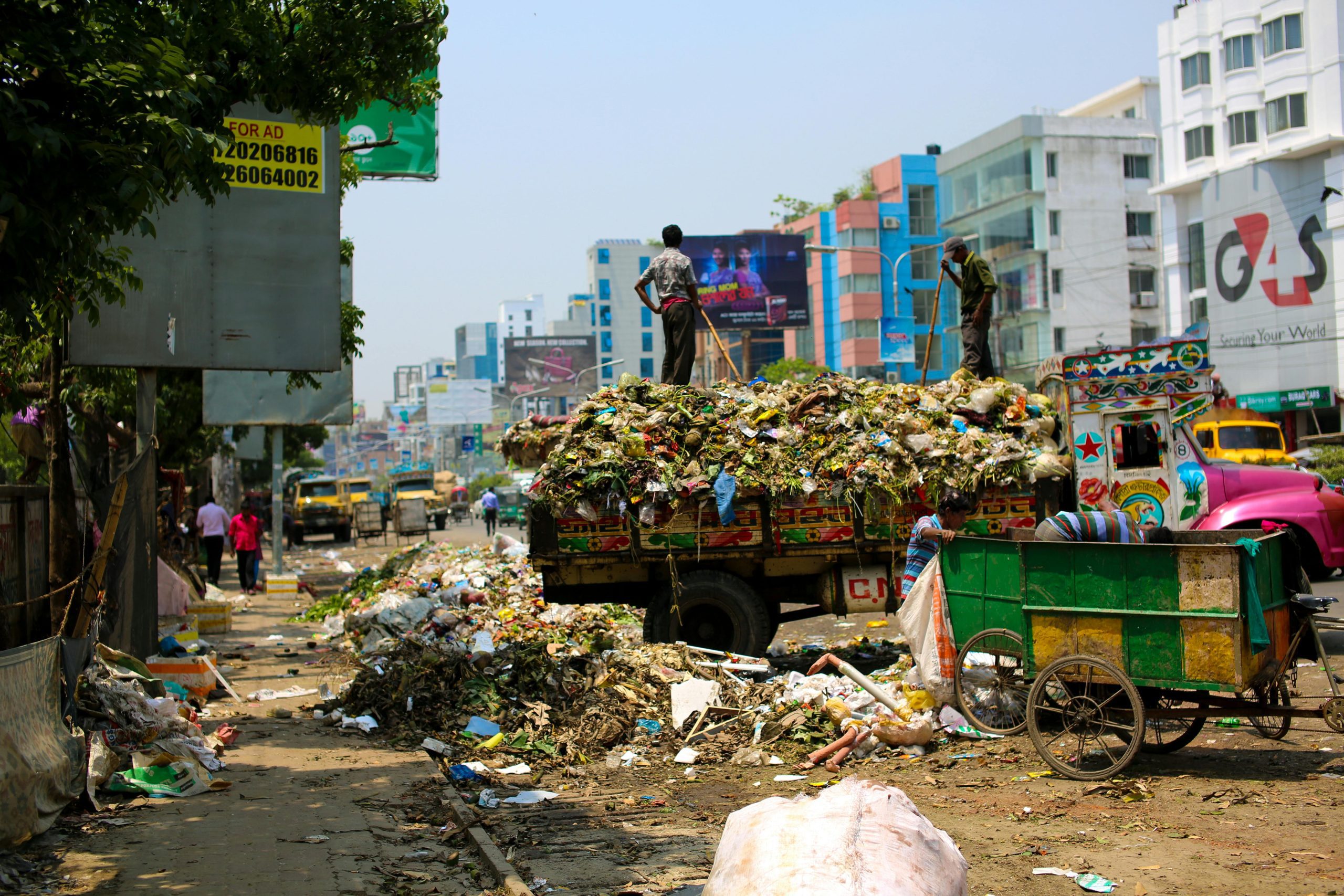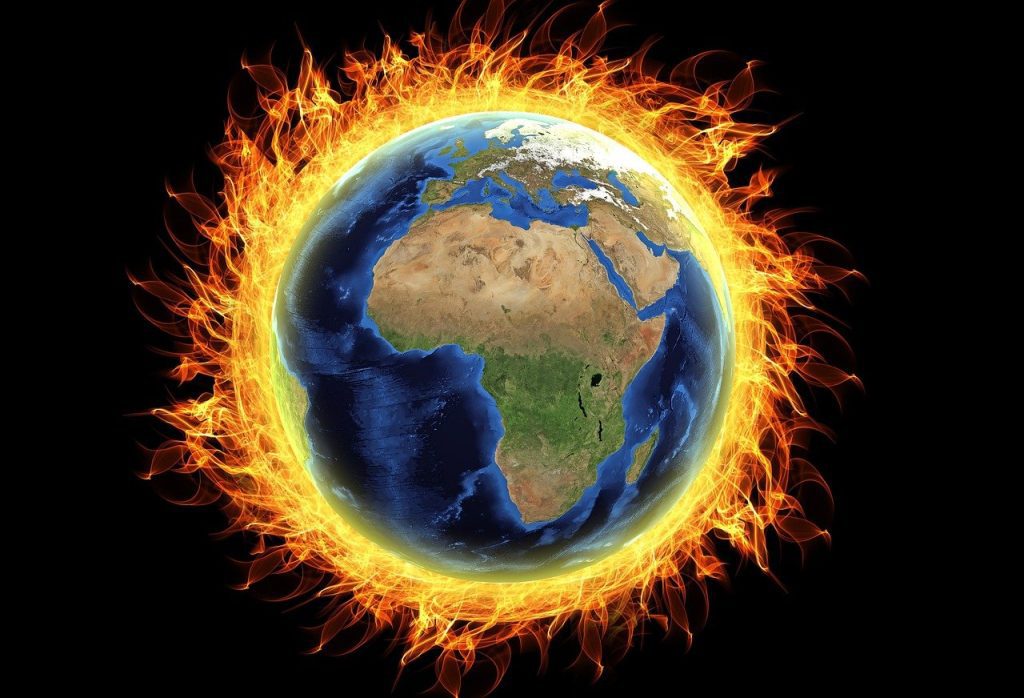Most of us don’t think twice about tossing food scraps and other organic waste into the trash. After all, it’s natural, right? How bad could it really be for the environment?
Well, the reality is that dumping organic waste into landfills is one of the silent contributors to global warming—and chances are, you didn’t even know it!
In this article, we’ll take a look at how dumping organic waste in dumpsites impacts global warming and what you can do about it.
It’s time to understand why we should care about this issue and how we can take steps to reduce our environmental footprint.
How Does Organic Waste in Landfills Contribute to Global Warming?
Here’s where things get a little technical but stick with me—it’s important. When organic waste like food scraps, grass clippings, and other biodegradable materials end up in landfills, they decompose without exposure to oxygen.
This process, called anaerobic decomposition, produces methane gas.
Methane is a greenhouse gas that’s much more potent than carbon dioxide. In fact, methane is about 25 times more effective at trapping heat in the atmosphere than CO2 over a 100-year period.
So, by throwing your organic waste into the trash, you’re unintentionally helping to produce this harmful gas that accelerates climate change.
What Is Methane, and Why Is It So Harmful?
Methane is a colorless, odorless gas that’s a major contributor to global warming. While carbon dioxide (CO2) often gets more attention, methane is far more damaging in the short term.
The Environmental Protection Agency (EPA) has stated that landfills are the third-largest source of human-related methane emissions in the U.S.
This powerful greenhouse gas is released when organic waste in dumpsites breaks down without oxygen.
So, every time food, yard waste, or other organic materials are dumped in landfills, the decomposition process creates harmful methane, trapping heat in the Earth’s atmosphere and contributing significantly to global warming.
Why Dumping Organic Waste in Dumpsites Is a Big Problem

If you’re thinking, “Well, it’s just food waste, it’ll break down naturally,” you’re not alone. That’s a common misconception. Organic materials don’t decompose the same way in a landfill as they would in nature.
In fact, the lack of oxygen in landfills means waste takes much longer to break down, and as it does, it emits large amounts of methane.
Imagine you dump a banana peel in a landfill. If it were in your backyard compost bin, it would decompose in a few weeks.
In a landfill? That same banana peel could take decades to break down, all the while emitting methane gas that contributes to climate change.
By sending organic waste to landfills, we’re not only wasting resources but also creating an environmental hazard.
According to the United Nations, around 10% of global greenhouse gas emissions come from food that’s produced, but not consumed.
Want to take control of your energy use and contribute your quota to reducing the excessive heat plaguing the planet?
Switch to solar power with our top-notch, affordable solar panels! Start saving on your bills and reduce your carbon footprint today.
It’s simple—just click here to see how easy it is to make the switch and join the solar revolution. Let’s power up for a greener tomorrow!
The Role of Landfills in Global Warming
Landfills are more than just heaps of trash; they’re significant contributors to global warming. Aside from methane production, landfills can also leach toxins into the soil and water. But methane is the star of the show when it comes to environmental damage.
Methane from landfills escapes into the atmosphere, where it traps heat and accelerates global warming. This is why we can’t afford to ignore the environmental impact of organic waste disposal.
It’s not just about reducing the amount of trash we create; it’s about controlling the dangerous gases that are a byproduct of waste management systems that weren’t built with climate change in mind.
How Can You Reduce Your Organic Waste Footprint?
Now that you know how organic waste in landfills impacts the environment, you’re probably wondering what you can do about it.
Thankfully, reducing your contribution to global warming by properly managing organic waste is easier than you might think.
1. Start Composting at Home:
Composting is one of the best ways to keep organic waste out of landfills. When you compost, you allow natural materials to decompose in the presence of oxygen, preventing the production of methane.
Composting reduces the need for chemical fertilizers and helps enrich the soil in your garden. Plus, it keeps organic waste out of landfills!
You can also try out vermicomposting at home to better recycle your organic wastes.
2. Separate Organic Waste for Municipal Composting:
Many cities and towns now offer green waste programs that collect food scraps, yard waste, and other organic materials.
These materials are then composted on a large scale, keeping them out of landfills and reducing methane emissions. If your city has such a program, make sure to use it.
3. Support Policies That Reduce Waste in Landfills:
Advocate for better waste management practices in your community. Encourage local governments to implement more robust composting and recycling programs. The more we divert waste from landfills, the less methane gets produced.
4. Reduce Food Waste:
Before we even talk about disposing of food waste, let’s address how we create it in the first place. According to the World Wildlife Fund, an estimated 40% of food in the United States goes to waste.
Reducing food waste is one of the easiest ways to minimize the amount of organic waste you send to landfills. Be mindful when shopping and cooking, and try to repurpose leftovers.
Want to take control of your energy use and contribute your quota to reducing the excessive heat plaguing the planet?
Switch to solar power with our top-notch, affordable solar panels! Start saving on your bills and reduce your carbon footprint today.
It’s simple—just click here to see how easy it is to make the switch and join the solar revolution. Let’s power up for a greener tomorrow!
Why Every Small Change Matters
It’s easy to feel overwhelmed by global problems like climate change, but the truth is, every little bit counts. By making small changes in how we handle our organic waste, we can reduce the amount of methane being released into the atmosphere and slow down the pace of global warming.
The next time you throw a banana peel or leftover food into the trash, remember that it’s not just about one item of waste—it’s about a global system that needs to change.
You can be part of that change by composting, supporting better waste management policies, and reducing food waste.
Bottom Line
We all have a role to play in reducing global warming, and it starts with being more conscious about where our waste goes. Dumping organic waste in landfills may seem harmless, but the truth is, it’s a huge contributor to methane emissions and, by extension, global warming.
So, the next time you’re about to toss that food scrap or grass clipping in the trash, take a moment to think about where it’s headed and what impact it will have.
Composting, reducing food waste, and supporting better policies, are different ways you can make a meaningful difference in the fight against climate change.
You might not be able to stop global warming overnight, but you can take a small step today that adds up over time. And in the face of climate change, every small action counts.
Want to take control of your energy use and contribute your quota to reducing the excessive heat plaguing the planet? Switch to solar power with our top-notch, affordable solar panels! Start saving on your bills and reduce your carbon footprint today.
It’s simple—just click here to see how easy it is to make the switch and join the solar revolution. Let’s power up for a greener tomorrow!
